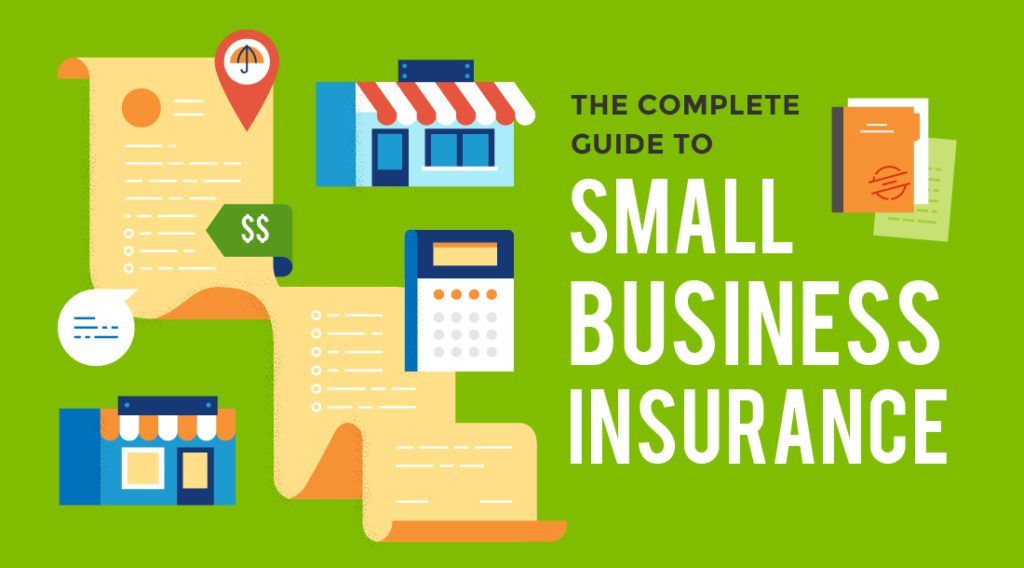With insurance options for small business owners at the forefront, this paragraph opens a window to an amazing start and intrigue, inviting readers to embark on a storytelling formal and friendly language style filled with unexpected twists and insights.
When it comes to running a small business, having the right insurance coverage is crucial. Understanding the various options available and how they can be tailored to specific needs is essential for protecting your business. Let’s delve into the world of insurance options for small business owners and explore the key factors to consider.
Types of Insurance Options

General liability insurance is essential for small business owners as it provides coverage for third-party bodily injury, property damage, and advertising injury claims. Professional liability insurance, also known as errors and omissions insurance, protects businesses from claims of negligence related to professional services. Property insurance covers physical assets such as buildings, equipment, and inventory from damages due to fire, theft, or other covered perils.
Examples of Scenarios:, Insurance options for small business owners

- A small bakery may benefit from general liability insurance to cover slip-and-fall accidents on the premises.
- A consulting firm would require professional liability insurance to protect against claims of providing incorrect advice.
- A retail store could benefit from property insurance to cover damages to inventory caused by a fire.
Factors to Consider: Insurance Options For Small Business Owners
When selecting insurance options, small business owners should consider factors such as the size of their business, the nature of their operations, and the specific risks associated with their industry and location. Assessing these factors is crucial in determining the appropriate coverage needed to protect the business adequately.
Importance of Assessing Risks:
- Small businesses in high-risk industries such as construction may require additional coverage for worker’s compensation due to the nature of their work.
- Businesses located in areas prone to natural disasters should consider adding coverage for property damage caused by floods, earthquakes, or hurricanes.
- The size of the business also plays a role in determining the level of coverage needed, with larger businesses typically requiring higher policy limits.
Customization and Tailoring
Small business owners can customize their insurance options by working with an insurance agent to tailor coverage to their specific needs. This process involves assessing the unique risks faced by the business and selecting policies that address those risks effectively.
Benefits of Customization:
- A restaurant owner may choose to add spoilage coverage to their property insurance policy to protect against losses due to food spoilage during a power outage.
- A technology startup may opt for cyber liability insurance to safeguard against data breaches and cyber-attacks.
- Working with an insurance agent allows small business owners to access expert advice and guidance on customizing insurance solutions to suit their individual needs.
Cost and Affordability

Small business owners can balance cost and coverage by comparing quotes from multiple insurance providers and exploring discounts or bundling options. It is essential to find affordable insurance solutions without compromising on essential coverage to protect the business adequately.
Strategies for Affordability:
- Consider choosing a higher deductible to lower premium costs while maintaining coverage for major losses.
- Explore package policies that combine multiple coverages such as general liability and property insurance for cost savings.
- Optimizing the insurance budget effectively involves reviewing coverage annually and adjusting policies as the business grows or changes.
Closing Summary
In conclusion, navigating the world of insurance options for small business owners can seem daunting, but with the right knowledge and guidance, you can make informed decisions to safeguard your business. Remember to assess your risks, customize your coverage, and find a balance between cost and protection. By working closely with an insurance agent, you can ensure that your small business is adequately covered for whatever comes its way.
Clarifying Questions
What factors should small business owners consider when selecting insurance options?
Small business owners should consider factors such as the size and nature of their business, industry-specific risks, and the location of their business.
How can small business owners balance cost and coverage when choosing insurance options?
Small business owners can balance cost and coverage by assessing their risks, finding affordable options without compromising essential coverage, and optimizing their insurance budget effectively.
Why is it important for small business owners to customize their insurance coverage?
Customizing insurance coverage allows small business owners to address specific risks they face, ensuring they have the right protection tailored to their unique needs.